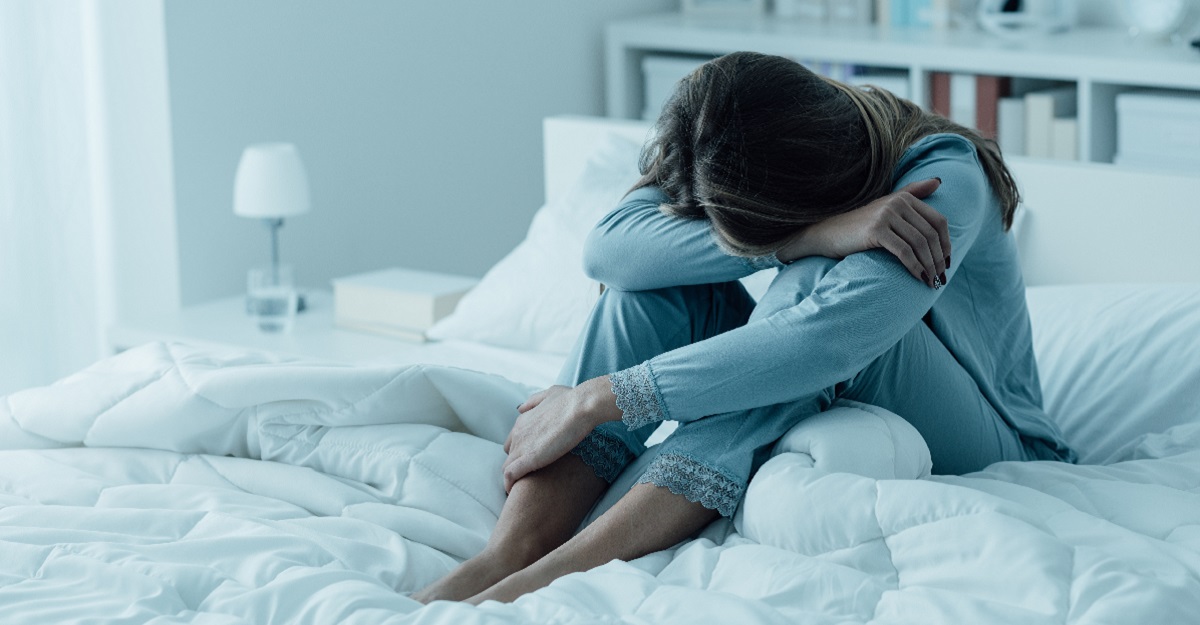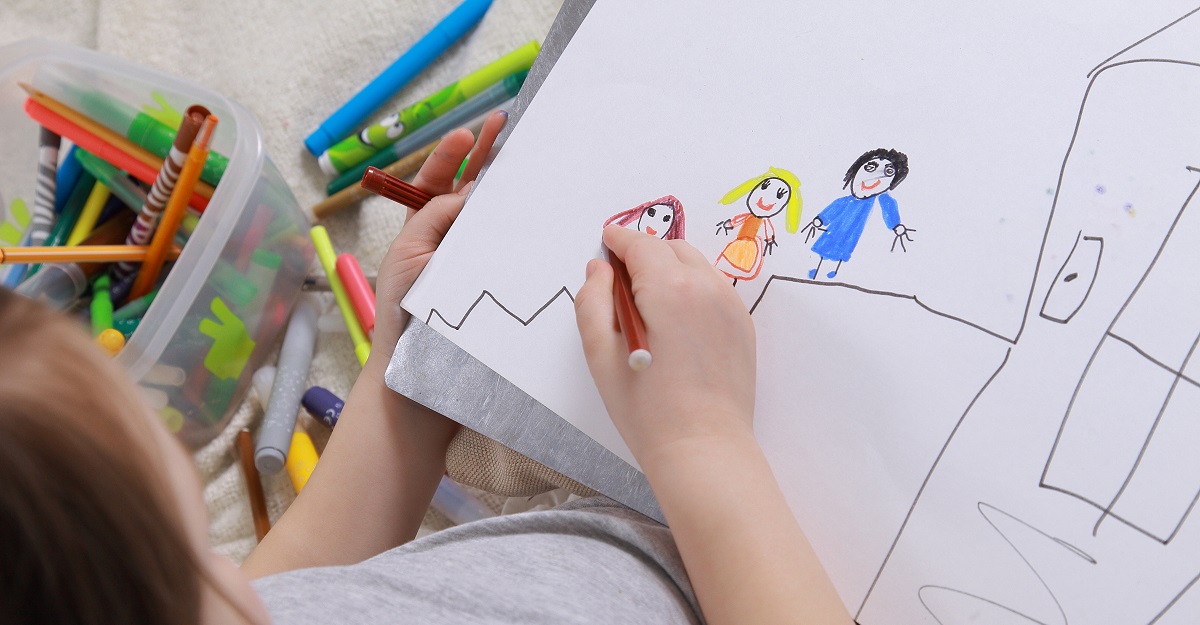What is Situational Depression?
Published By Justin Baksh, LMHC, MCAP
September 25, 2023

It starts with a major change in your life. Maybe you have recently lost a loved one, had a financial setback, or gone through a breakup or divorce.
As a result, you feel sad, a sense of hopelessness, are having trouble sleeping or find yourself crying at strange times throughout the day. You may not be able to concentrate on the task at hand, feel a general sense of worry or anxiety, and find yourself sitting out from activities and gatherings with friends and family.
In other words, you may be experiencing situational depression
Situational Depression Definition
Situational depression is also referred to as adjustment disorder with depressed mood. Again, it emerges in response to a challenging or stressful circumstance, causing the symptoms of depression to develop.
With situational depression, you have difficulty coping with one or more major life events, such as the loss of a loved one, relationship difficulties, or problems at work. It can be severe enough that it impacts how you function in everyday life.
While situational depression may be short-lived, it can still have a significant impact on your emotional well-being.
“When people think of situational depression, they are often thinking of adjustment disorders. An adjustment disorder is a reaction to a stressor that is more intense than a typical emotional response, but not as severe as a full depressive episode…
I hear people use the phrase ‘situational depression’ quite a bit, and I honestly have mixed feelings about it. It captures something valuable for many people, in that it seems to provide an explanation for the sadness they are experiencing.
That can also be a risk, though, since people often minimize the severity of their depression when they think of it as just a reaction to a situation.”
Steven Bartek, Clinical Instructor of Psychiatry at Michigan Medicine, in a HuffPost Life Article
No matter what the cause of your depression, it’s important to seek treatment.
Clinical vs. Situational Depression
Situational depression is different from other types of depression in several key ways. One major difference between situational depression and other types of depression lies in the cause.
Situational depression is directly linked to specific stressors or life events, whereas other types of depression may not have such an obvious trigger.
Another distinction lies in the duration of the symptoms. In general, situational depression is expected to resolve within six months after the stressor has been removed or properly addressed. This contrasts with other types of depression, like Persistent Depressive Disorder (PDD), which can persist for years, or bipolar disorder, which involves multiple episodes throughout a person’s life.
The severity of symptoms can differ between situational depression and other types of depression. Though individuals with situational depression experience significant emotional distress, their symptoms might not be as severe as those experienced during a major depressive episode.
Lastly, treatment approaches for situational depression often focus on addressing the root cause of the emotional distress. This may involve therapy to help improve coping skills or build resilience. For other types of depression, treatments such as medication and long-term psychotherapy are commonly utilized.
The Causes of Situational Depression
Although situational depression can affect anyone at any time, there are certain life events that are commonly associated with type of depression. The stress brought on by these kinds of situations is the key cause of situational depression.
Common Life Events that Can Trigger Situational Depression
- Relationship Problems: Relationship problems are one of the most commonly cited triggers for situational depression. Studies show that people who go through a divorce are up to 25% more likely to be depressed than those who stay married. In addition to divorce, breakups or relationship conflict can also cause you to feel overwhelmed and unable to cope with your emotions, leading to feelings of sadness, low self-esteem, and hopelessness.
- Job Loss or Work-Related Stress. Losing a job or being faced with ongoing work-related stress can be incredibly tough on an individual’s mental health. Being unemployed raises the chance of depression – up to three times higher than those with jobs, according to one study. After six months, that rate can climb even higher, another study found. Work-related stress or a toxic work environment can also lead to feelings of helplessness and despair, which may result in situational depression.
- Death of a Loved One: The death of a loved one is an extremely difficult event and is one of the most common triggers for situational depression. Grief and sadness are natural reactions to losing someone important in our lives, but when those feelings become overwhelming and persistent, it can evolve into situational depression. Up to 58 percent of people – and half of those who’ve lost a spouse – experience it within the first year after the loss.
- Financial Difficulties: Financial problems are a significant stressor that can negatively impact our emotional well-being. The stress from mounting bills or debt can cause individuals to feel overwhelmed and defeated, potentially leading them to develop situational depression as they struggle to navigate their situation. In fact, studies show that financial stress can even impact your physical health.
- Injury or Illness: Mind and body are connected, so that a physical ailment can trigger a mental response. Even a virus can cause inflammation in the brain through the production of cytokines. This can impair your thinking and cause depression. Depression is also commonly found in those who have pain from an illness such as heart disease, diabetes and cancer. Brain injuries have also been linked with depression.
- Having a Baby: Bringing a child into the world is a wonderful event, however, it has been linked with postpartum depression. Postpartum depression may happen due to hormones, a genetic predisposition, emotional issues, or environmental factors.
- Retirement: Many people dream of retiring and finally enjoying life. What they may not account for is a case of situational depression that may follow. In fact, estimates are that up to 33 percent of retirees experience the symptoms of depression. Experts cite a loss of a sense of purpose and even just the routine of going to work everyday as possible reasons why situational depression can develop in retirement.
- Moving to a new town: Even if you are moving for a positive reason, you may still be stressed by the experience. Also called relocation depression, situational depression related to moving. That may be why one study found that frequent childhood moves can negatively affect mental health. As well, older adults who need to move into senior care facilities can experience depression as well.
As you can see, even events that are seen as positive changes can trigger situational depression.
Stress, which can happen in response to events perceived as good or bad, plays a crucial role in the development of situational depression because it impacts how an individual perceives and copes with challenging events in their lives.
When faced with high-stress situations, hormones such as cortisol and adrenaline are released, which can cause heightened emotions, physical tension, and decreased ability to think rationally.
This heightened stress response can make it challenging for an individual to cope effectively with the triggering event, leading them to feel helpless and overwhelmed. When these feelings persist over time, situational depression may develop.
The Symptoms of Situational Depression
To better identify and address situational depression, it is essential to be aware of its emotional and physical symptoms.
Situational Depression Symptoms
Sadness and Hopelessness
Individuals with situational depression often experience prolonged feelings of sadness or despair that seem overwhelming. These feelings might be expressed through episodes of crying or a persistent state of sadness.
Anxiety and Irritability
As situational depression takes hold, people may lose interest or find little pleasure in activities they used to enjoy. This lack of motivation can impact hobbies, social interactions, and professional commitments.
Changes in Appetite or Weight
Situational depression may cause changes in eating patterns, sometimes leading to noticeable weight gain or loss. One might feel a lack of appetite or turn to food for comfort.
Sleep Disturbances
Many individuals struggling with situational depression experience sleep disturbances such as insomnia or oversleeping. These changes in sleep patterns can exacerbate other emotional and physical symptoms.
Fatigue
Due to sleep disturbances or the mental toll of persistent negative emotions, people with situational depression often feel fatigued, regardless of their activity level.
Diagnosis, Treatment, and Coping Strategies
There are several diagnosis and treatment options for individuals living with situational depression, officially termed adjustment disorder.
Diagnostic Criteria
Mental health professionals use the Diagnostic and Statistical Manual of Mental Disorders (DSM-5-TR) to diagnose adjustment disorders.The diagnostic criteria include:
- Emotional or behavioral symptoms in response to an identifiable stressor occurring within three months.
- The symptoms are more severe than what would be expected from exposure to the stressor.
- The symptoms significantly impact daily functioning.
- The disturbance does not meet criteria for any other mental disorder diagnosis.
- The symptoms do not represent normal bereavement following the death of a loved one.
It is crucial to rule out other possible conditions that may cause similar symptoms, such as major depression or anxiety disorders. Accurate diagnosis ensures proper treatment and support can be provided.
Adjustment disorders can co-occur with depression, anxiety, and disturbed conduct as well.
How to Deal with Situational Depression: Treatment Options
All hope is not lost if you are experiencing situational depression. Treatment is available.

Psychotherapy
Psychotherapy can help alleviate the symptoms of situational depression. Cognitive-Behavioral Therapy (CBT) helps individuals learn to challenge negative thoughts and develop healthier coping strategies. Interpersonal Therapy (IPT): IPT focuses on improving relationships and communication skills, and helping individuals dominate their situational depression by enhancing social support.

Medication
Medications such as antidepressants might be prescribed in some cases where the situational depression symptoms don’t improve despite psychotherapy, or if there is a risk of escalation into major depression.

Coping Mechanisms & Self-Help Strategies
Regular physical activity can elevate mood, alleviate stress, and improve sleep quality. Eating a balanced diet and maintaining a regular sleep schedule can also significantly impact mental well-being. Joining a support group allows you to share experiences, feelings and coping strategies with others going through similar situations, fostering a sense of understanding and emotional support. Finally, mindful activities like meditation, yoga, and deep breathing exercises aid in alleviating stress symptoms and fostering a sense of relaxation and mental clarity.
Can Situational Depression Be Prevented?
While there are no guaranteed ways to prevent depression, there are proactive measures that can be taken to potentially avoid or minimize mental health problems. Prevention essentially means practicing healthy habits to encourage a strong foundation for mental stability. Resilience building refers to fostering a person’s ability to adapt, cope, and recover from difficulties, stress, and adversity.
Combining both prevention efforts and resilience building can be a powerful way to create better mental health outcomes. Investing in these strategies will not only help protect against potential crises but can also empower individuals to reach their full potential, strive for personal growth, and maintain a balanced lifestyle.
Identifying and Managing Stressors
The first step in preventing mental health issues is identifying your triggers or stressors. Different people have different stressors – it could be work, relationships, financial troubles, or personal goals. Once you’ve identified your primary sources of stress, brainstorm ways you can minimize them or develop healthy coping mechanisms for when they’re unavoidable.
Building a Social Support Network
Having a strong social support network is an invaluable resource for mental health resilience. When life throws challenges at you, knowing that there are people you can lean on for encouragement or guidance can make all the difference. Cultivate deep connections with family members, friends, co-workers, or even members of interest groups – these relationships play a significant role in managing stress levels.
Self-Care and Self-Awareness
Investing in self-care is essential for preventing mental health difficulties. Set time aside each day to engage in activities that make you feel relaxed and rejuvenated. This might include exercise, meditation, reading, or simply spending time in nature. Additionally, practice self-awareness by understanding your emotional responses and recognizing the signs of stress, such as irritability or fatigue. By being aware of your emotional state, you can better manage your negative emotions and prevent them from escalating.
Recognizing the signs and symptoms of situational depression is crucial for seeking appropriate support and treatment. If you believe that you or someone close to you may be experiencing situational depression, it is important to reach out to a mental health professional for guidance and assistance in managing this challenging period.
- 5 Red Flags You’re Dealing With “Situational” Depression. (2020, December 16). HuffPost.
- Guan, N., Guariglia, A., Moore, P., Xu, F., & Al-Janabi, H. (2022). Financial stress and depression in adults: A systematic review. PLOS ONE, 17(2), e0264041.
- How a Physical Illness Can Trigger Depression | Psychology Today. (n.d.). Retrieved September 22, 2023, from Psychology Today
- Maj, M. (2012). Bereavement-related depression in the DSM-5 and ICD-11. World Psychiatry, 11(1), 1–2.
- Mayo Clinic. (2017). Adjustment disorders – diagnosis and treatment – mayo clinic. Mayoclinic.org.
- Relocation Depression: What It Is and Ways to Cope. (2023, March 6). Healthline.
- Retirement Depression: How to Regain Purpose After Retiring. (2022, May 13). Psych Central.
- Substance Abuse and Mental Health Services Administration. (2016, June). Table 3.19, DSM-IV to DSM-5 Adjustment Disorders Comparison. Nih.gov; Substance Abuse and Mental Health Services Administration (US).
- Ward, M. (n.d.). 4 science-backed ways to cope with depression if you’ve lost a job and feel like you also lost your sense of purpose. Business Insider.
- Why Do People Get Depression After a Brain Injury? | BrainLine. (2018, August 7).






